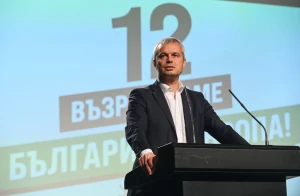
Hollow promises: Budapest Memorandum's failure to ensure Ukraine's security
Twenty-nine years ago, on December 5, in Budapest, three nations – the USA, Great Britain, and Russia – pledged security assurances to Ukraine in exchange for relinquishing its nuclear weapons. This agreement, known as the Budapest Memorandum, was signed as Ukraine simultaneously committed to the Treaty on the Non-Proliferation of Nuclear Weapons
Espreso explores the circumstances surrounding the Budapest Memorandum and why it fell short in providing the security Ukraine sought.
In this article, you’ll discover:
- History behind the memorandum's signing
- Influences prompting Ukraine to sign the Budapest Memorandum
- Essence of the Budapest Memorandum
- Reasons for its ineffectiveness
- Prospects for Ukraine's security independent of the Budapest Memorandum
Prerequisites for Budapest Memorandum signing
In 1991, following the USSR's collapse, Ukraine inherited the world's third-largest nuclear arsenal from the Soviet Union.
After gaining independence, the issue of Ukraine's nuclear potential emerged. The core principles of "not accepting, producing, or acquiring nuclear weapons" were outlined in the Declaration on State Sovereignty. This matter was pivotal for both the USA and Russia, with both nations pressuring Ukraine to denuclearize.
President Leonid Kravchuk, seeking the path of least resistance, actively declared intentions to relinquish nuclear weapons and strip Ukraine of its nuclear status. Kravchuk later argued that Ukraine only produced launch vehicles, while nuclear warheads were manufactured in Russia. He claimed lack of funds, estimating a maintenance cost of $65 billion, as the reason for not establishing independent warhead production. However, opposition figures, including Vyacheslav Chornovil, Levko Lukyanenko, and Oleksandr Skipalsky, opposed the nuclear-free status for Ukraine.
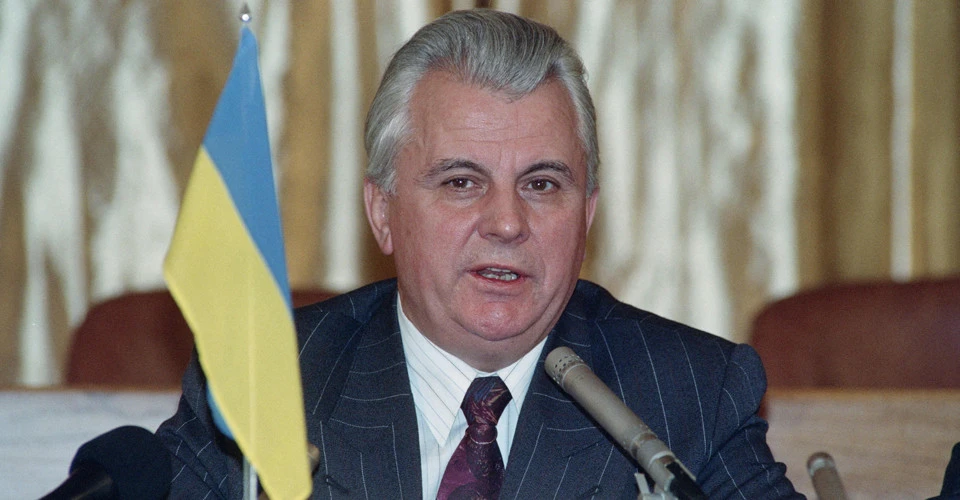
Leonid Kravchuk, gettyimages
Historical sciences expert and international columnist Yehor Brailyan noted in a comment to Espreso that back in the 1990s, the United States strongly urged Ukraine to relinquish its nuclear arsenal.
"In those days, the U.S. made it clear to Ukraine that financial assistance would not be forthcoming unless it abandoned nuclear weapons. Ukraine was grappling with economic challenges in the early '90s, facing a dismantled command-administrative system, a non-functional planned economy, and lacked experience in international politics. Although some U.S. politicians weren't fervently advocating for nuclear disarmament, Ukraine couldn't leverage these internal differences," explains the scholar.
By 1992, both U.S. and Russian delegations were approaching Ukraine with proposals to dismantle or surrender its nuclear weapons. All tactical nuclear munitions were swiftly moved to Russian facilities for disposal in the first half of 1992.
Subsequently, strategic weapons were slated for transfer to Russia as part of Ukraine's adherence to the Soviet-American Strategic Arms Reduction Treaty.
According to Serhiy Halaka, a professor at KNU Institute of International Relations, Ukraine has a significant amount of tactical ammunition.
"We're talking possibly over 4,000; the exact number is still unknown. Ukraine could manage tactical weapons since they don't need special codes. The process involves the corps commander having a safe with a package detailing specified targets. In the event of a potential war, the corps commander makes the decision. These weapons have a range of up to 1,000 km, making them an ideal deterrent for Ukraine," he explained to BBC News.
What is the Budapest Memorandum?
The Budapest Memorandum concluded prolonged international negotiations on Soviet nuclear weapons under Ukraine's control. On December 5, 1994, Presidents Leonid Kuchma, Boris Yeltsin, Bill Clinton, and British Prime Minister John Major signed the document.
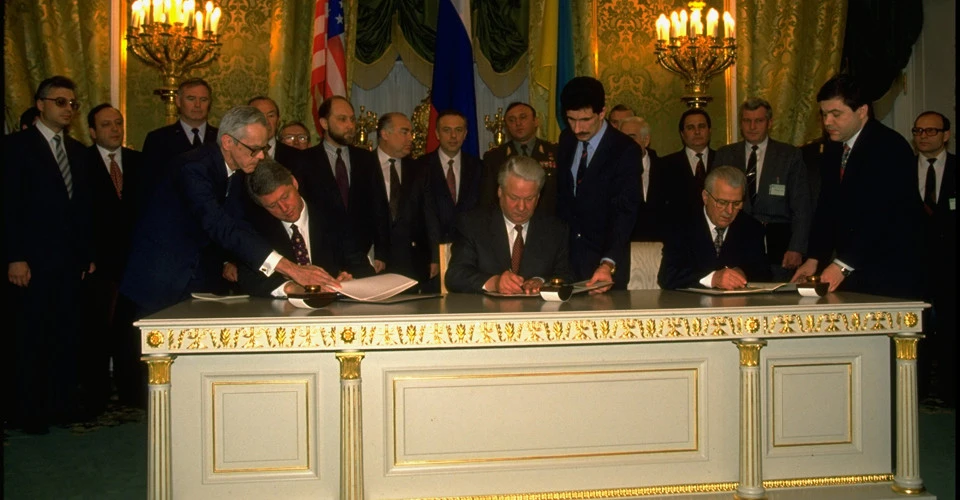
Photo: gettyimages
The memorandum committed signatory states to respect Ukraine's independence, sovereignty, and existing borders. They pledged to avoid threats, the use of force, and economic pressure. In the event of nuclear threats to Ukraine, immediate action from the UN Security Council was mandated.
Yehor Brailyan noted that after the Soviet Union's collapse, Western nations feared the spread of the former USSR's nuclear arsenal. Consequently, they sought legal means to register the elimination of the nuclear status of countries like Belarus, Ukraine, and Kazakhstan.
"The USA essentially compelled Ukraine to relinquish nuclear weapons through an ultimatum. The primary role in forming such a treaty was played by the USA and Britain, with Russia joining later. Additionally, two other nuclear powers, France and China, were associated signatories with specific obligations," explained the scientist.
It's crucial to remember, according to Yehor Brailyan, that during that period, there were no other legal instruments to provide security guarantees for Ukraine. In the early 1990s, NATO was still finding its role after the USSR's collapse. The prevailing sentiment was euphoria, supposedly due to the triumph of democracy.
Why the Budapest Memorandum failed
The inefficacy of the Budapest Memorandum was recognized by its signatory, Leonid Kuchma. The second Ukrainian president acknowledged being cautioned about the memorandum's unreliable guarantees after signing, as reported by the BBC.
Kuchma recounted advice from then-French President Francois Mitterrand at an international conference in Jerusalem, saying, "Son, don't believe this document, you will be deceived."
Even before the conflict with Russia, Ukraine sought assistance from the signatory nations. The first appeal came during the 2003 Tuzla Island dispute and the Ukrainian-Russian "gas war" in 2006.
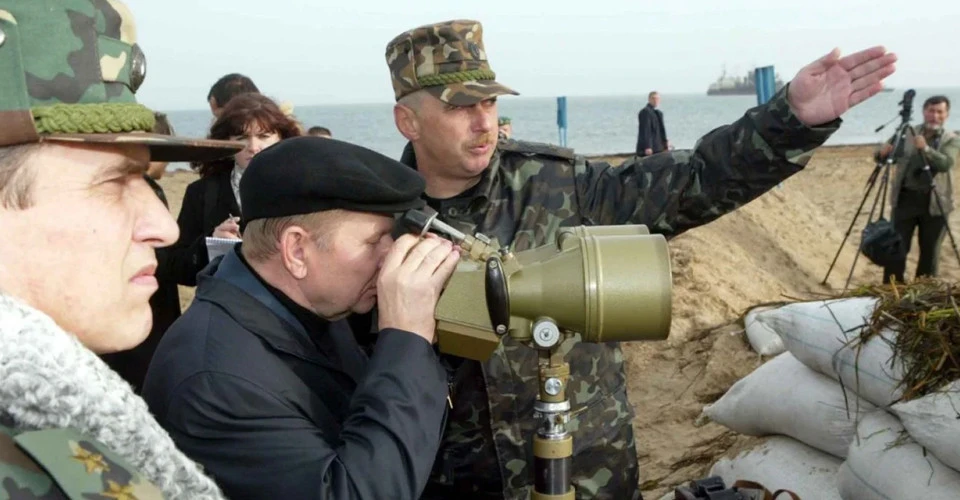
Photo: ukrainianworldcongress
In March 2014, as Russia annexed Crimea, the Ukrainian parliament appealed to the Memorandum's signatories to reaffirm their commitment. The USA initiated a consultation in Paris, attended by then-US Secretary of State John Kerry, British Foreign Minister William Hague, and Ukraine's Acting Minister of Foreign Affairs, Andriy Deshchytsia. The aggressor country did not participate, and Russia later refused such consultations altogether.
Brailyan notes, "Following Russia's annexation of Crimea, nations recognized it as a breach of Russia's commitments to Ukraine under the Budapest Memorandum. However, Russian President Vladimir Putin responded, stating, 'A new state has emerged in Ukraine, but we didn’t sign any binding documents with this state.'"
Brailyan explains that the memorandum faltered because, during that period, the West hadn't intended to provide security assurances to Ukraine. The post-Cold War era was seen as an era of peaceful coexistence, and there was a belief that wars were a thing of the past.
"There was a sense in the West at that time – it's done, no more wars; everything will be fine, and we are progressing in the right direction. So, the disarmament of nuclear weapons, for them, might have seemed like a step towards a brighter future," he added.
On February 21, 2022, Ukraine's Ministry of Foreign Affairs requested immediate consultations from UN Security Council member states based on the Budapest Memorandum. This followed President Volodymyr Zelenskyy's Munich Security Conference speech, where he declared Ukraine's intent to initiate consultations for the fourth and final time. If these consultations don't occur, Ukraine reserves the right to consider the Budapest Memorandum ineffective, calling into question the 1994 decisions, especially regarding nuclear disarmament.
Ukraine's security beyond the Budapest Memorandum
Diplomats and experts consistently assert that the Budapest Memorandum, designed to ensure Ukraine's security and sovereignty, is ineffective. Consequently, joining NATO is deemed the sole viable solution.
International columnist Yehor Brailyan strongly advocates for this perspective, emphasizing that the essential lesson from the Budapest Memorandum is that NATO membership provides Ukraine with the best security guarantees.
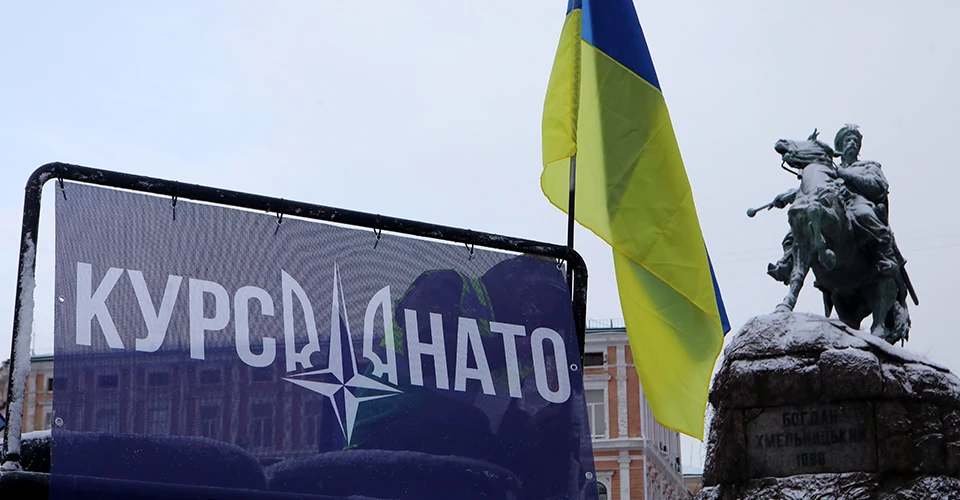
Photo: gettyimages
"Ukraine cannot feel secure without NATO. Back in the early '90s, NATO wasn't even on the table. Russia wasn't perceived as a potential threat. This may be the crux of the matter in how it was all outlined. In 1992, Kissinger acknowledged the differences between Russia and Ukraine, stressing the need to invest more in Ukraine's security. Even the well-known American political scientist John Mearsheimer, who is currently pro-Russian, cautioned in 1993 that disarming Ukraine of nuclear weapons would only heighten the risk of Russia waging war against Ukraine," explained the political scientist.
In the current context of the Russian-Ukrainian war, Ukraine relies on NATO promises to join the alliance once the conflict concludes. Notably, the Yermak-Rasmussen Kyiv Security Treaty, inked in 2022, aims to provide stability for Europe and prevent the recurrence of war crimes. The document's objective is to establish security guarantees preventing Russia from committing similar offenses.
However, Brailyan points out that this treaty outlines broad concepts of security assurances for Ukraine before actual NATO membership.
According to Brailyan, "Rasmussen, the former NATO Secretary General, talks extensively about Ukraine. Yet, it's crucial to grasp that these are general ideas. True security assurance comes only with NATO membership."
- News










